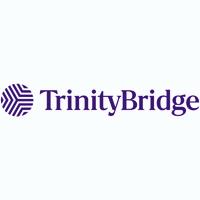Why benefits should be about lifestage not age

However, he is managing to put some money aside in addition to his company pension. He hopes his mother’s house will partly fund his retirement. Will quite literally has no time for Twitter or researching online and if he needs to make a major financial decision, he’d rather speak to someone face to face. How old is Will?
I’d also like you to meet Alison. She runs a small business, which she launched two years ago alongside her full-time day job. Although she’d describe herself as a saver, since the business started she hasn’t been able to put much money aside. Plus, she has the added expense of a wedding next year, and a student loan to pay off.
Much of her business marketing is done over social media, so she’s thoroughly familiar with LinkedIn, Snapchat and everything in between. Alison is very comfortable receiving savings information and financial guidance online, both for her personal finances and about her business. But, if she has a complicated decision to make, she’d rather meet with someone face to face. How old is Alison?
Why age shouldn't matter
Answers are at the bottom of the page but it doesn’t, and shouldn’t, matter. And while Will and Alison might be fictional, their life circumstances are examples we see all the time. Not everyone with a student loan is in their 20’s. Not everyone who has to care for a relative is in their 50’s.
The sequence in which life events happen is as varied and complex as individuals themselves. There will be employees within your business who are carers, those with weddings to pay for and debts to cover, as well as all manner of other financial and emotional events that may not happen at the most obvious points in their life. And in many cases, you as their employer won’t be aware of them.
Assuming you’ve peeked at the bottom of the page by now, if you were to reverse Will and Alison’s situations, the guidance, advice and education they need would be very different. If, at the age of 56, Alison had meagre savings and over-reliance on a parent’s house to fund her retirement, she would need very different support from Will at age 25.
Similarly, the ways in which Will and Alison like to access information about their finances differ in some aspects - but not in others. While Alison may be the more confident online, that doesn’t mean she always prefers this method, or would choose it if other options were available.
Even at the age of 25, Will clearly doesn’t have the time or inclination for studying his options online, despite a pervading and dangerous assumption that his ‘Generation Z’ age group are more likely to choose self-service online options.
We are all unique
The great challenge of financial education, guidance and advice is that we are all unique. One communication channel, one engagement platform and a ‘someone like you’ approach won’t work for everyone.
Making assumptions about individuals’ circumstances or preferences based on their age could not only be doing that person a great disservice - it could be the difference between successful communication and engagement and giving them the support they need or missing them entirely.
*Will is 25; Alison is 56.
Jeanette Makings is head of financial education at Close Brothers.
This article was provided by Close Brothers.
Supplied by REBA Associate Member, TrinityBridge Limited, formerly Close Brothers Asset Management
TrinityBridge has been delivering workplace financial wellbeing programmes to some of the UK’s best-known employers for over 55 years.







